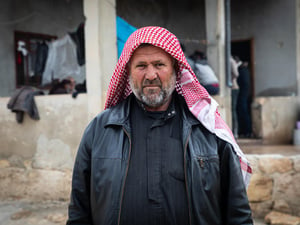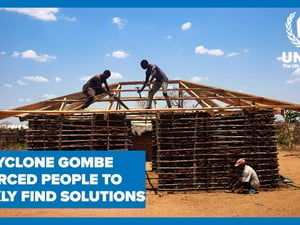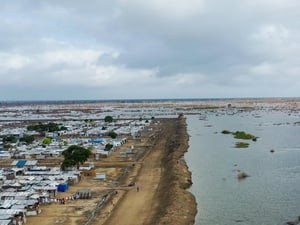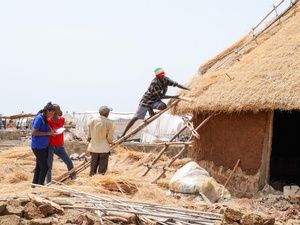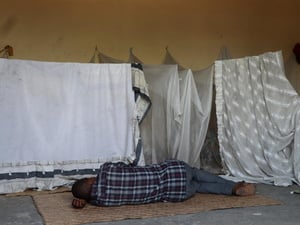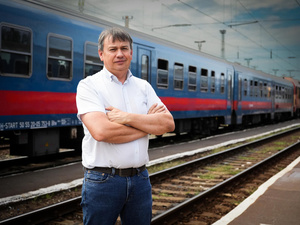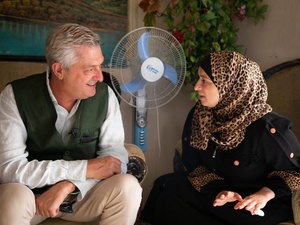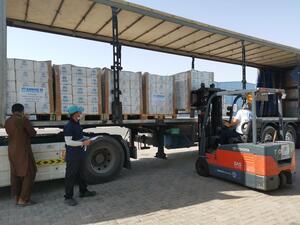Helicopters bring shelter, hope for Myanmar's cyclone victims
Helicopters bring shelter, hope for Myanmar's cyclone victims
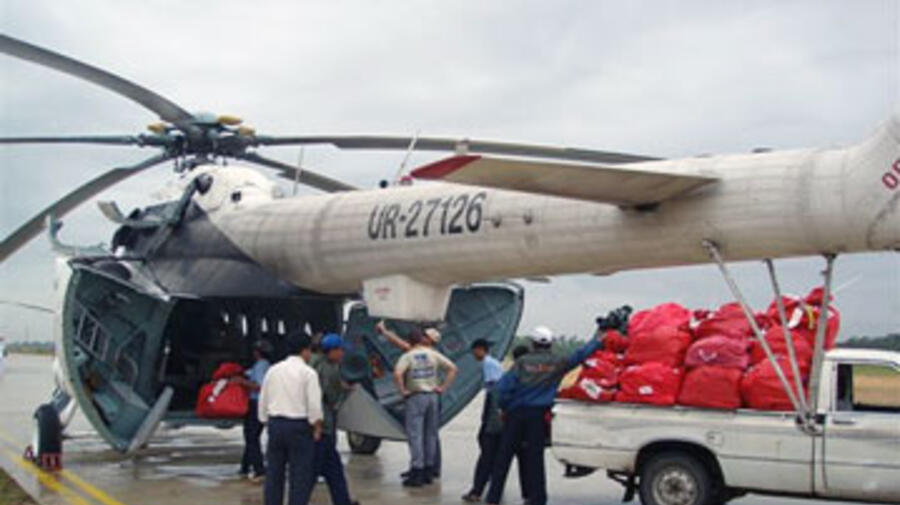
Shelter kits being loaded onto a helicopter in Yangon for transport to a village in Irrawaddy Delta. Photo courtesy of and
DANI SEIK, Myanmar, July 3 (UNHCR) - Still shattered by the cyclone that swept away most of their relatives two months ago, the residents of Dani Seik village in southern Myanmar were stunned to see a gleaming white helicopter land unannounced this week in one of their rice paddies.
Amazement turned to gratitude when they realized the chopper was laden with just what they needed most - UNHCR shelter kits containing plastic sheets, blankets, mosquito nets to combat dengue fever, and household goods such as soap, jerry cans and kitchen utensils.
"I didn't see anyone smiling, maybe they are too traumatized," UNHCR Logistics and Supply Officer Narayan Paudel said of his Wednesday flight here. "But it could be understood from their faces that they were glad to get our aid. Now they can make their huts more waterproof. And the whole village stayed with us for the entire two hours we were there."
This week, from Monday to Wednesday, UNHCR used helicopters from the inter-agency logistics cluster set up in the city of Yangon to deliver aid to the Irrawaddy Delta after Cyclone Nargis hit on May 2-3. The cluster, composed of UN agencies and non-governmental organizations, is headed by the World Food Programme.
"Using the helicopters enabled us to help villages that haven't received enough aid so far," said Christiane Blessing-Win, UNHCR's programme officer in Yangon.
UNHCR staff on the helicopters distributed 200 shelter kits to three remote villages. Villagers who met the helicopters cheerfully unloaded and carried away the shelter kits, packed in bright red second-hand courier bags donated by international logistics company, DHL.
Dani Seik suffered some of the worst damage in the Delta. Of 1,703 inhabitants, some 1,300 - more than 75 percent of the population - were killed by Cyclone Nargis. Only 306 people remain in the village, trying to carry on by planting rice.
In this part of Myanmar's rice-bowl, where farming is done by hand and with the aid of animal-drawn ploughs, every one of the 400 cows and buffalo perished - a devastating blow.
Villagers told the UNHCR team they had received some aid from non-governmental organizations - small amounts of rice, beans, cooking oil and canned sardines as well as tarpaulins which they used to cover tiny rickety makeshift shelters.
"They really have nothing," reported Paudel, a member of UNHCR's emergency team deployed from his usual base in Budapest, Hungary. "I peeked in some huts and they have absolutely nothing, not even any clothes hanging up. In one kitchen, their stove was three bricks with an aluminium pot on top."
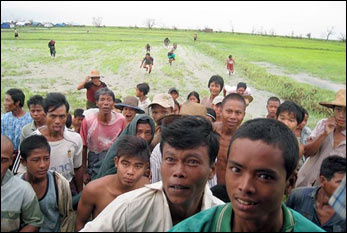
Residents of Dani Sek village gather around a helicopter laden with UNHCR shelter kits.
Venturing into the Delta for the first time and trekking through mud up to his knees, Paudel felt privileged to be able to help people in such desperate need.
"People don't have blankets and we are giving them blankets," he said. "For a long time they haven't been able to take a proper shower and now we are giving them soap."
Paudel said he felt pround that UNHCR was giving people aid directly. "From the moment we gave it to them, we could see the impact of our help instantly."


